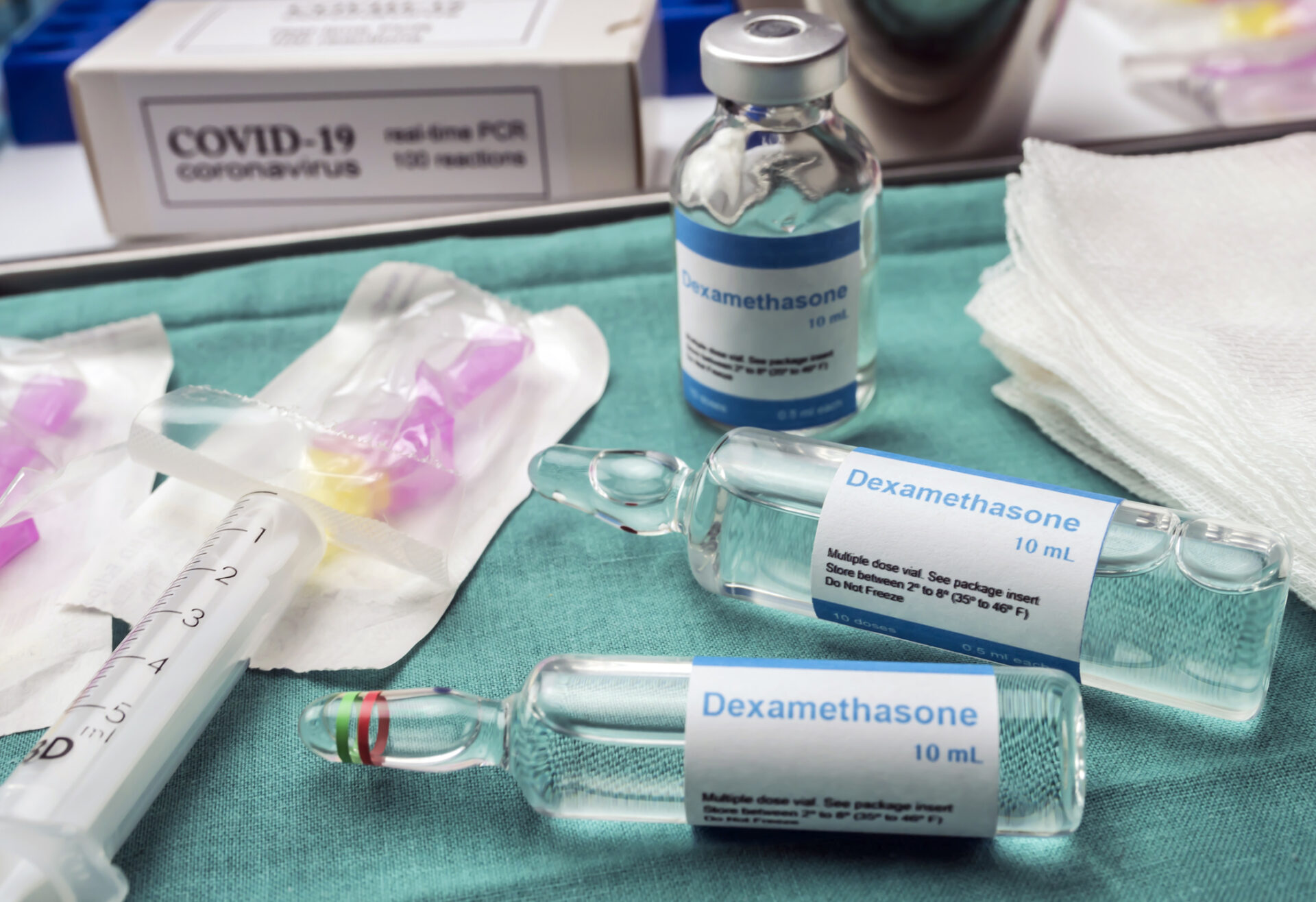
You might have seen this potent drug mentioned in the news quite a bit lately, especially as a COVID-19 treatment of choice for Donald Trump. In this article, we take a closer look at what exactly this drug is, why is it used and how it works.
Dexamethasone is a corticosteroid that goes by a number of different names including:

Dexamethasone has recently been popularised by Donald Trump as a treatment for COVID-19 and has been used successfully to treat some patients.
The World Health Organisation (WHO) reports that dexamethasone was tested in hospitalised COVID-19 patients during the United Kingdom’s (UK) national RECOVERY clinical trial where it was found to have benefits for critically ill patients.

When administered to patients on ventilators, dexamethasone reduced fatalities by about one third. In patients who required only oxygen to be administered, mortality rates were cut by about one fifth.
In the light of these promising results, the WHO has included by dexamethasone as a treatment option for patients with COVID-19. However, its use has been restricted to patients with severe and critical infections that typically require interventions such as oxygen therapy or ventilation. Administering dexamethasone in the early-stages of COVID-19 infection could be harmful to the patient and, at best, have no benefits at all. Hence, it has not been recommended for use in patients with less severe COVID-19 infections.
Infection by the COVID-19 virus prompts the patient’s immune system to fight the virus. Unfortunately, although the immune system is vital in fighting serious diseases such as COVID-19, sometimes the inflammatory response that results is counterproductive and leads to complications such as severe viral pneumonia and ‘cytokine storms’.
Severe viral pneumonia is caused by inflammation of the lungs. Within the lungs, the air sacs (alveoli), where carbon dioxide and oxygen are exchanged, are most vulnerable to inflammation. In response to the inflammation, the body sends fluid chock full of white blood cells into the alveoli. An accumulation of this fluid in the lungs makes breathing difficult and ventilation may be necessary to counter the effects of the excess fluid in the lungs.
Cytokine storms are a slightly different kettle of fish. Coronaviruses (such as COVID-19, SARS and MERS) are notoriously associated with the immune response commonly known as a ‘cytokine storm’. Cytokines are proteins that act as messengers between the immune system and immune cells. A cytokine storm occurs when, in directing the immune cells to attack the region infected by the virus, the body releases more cytokines than required, which causes too much inflammation. The activated immune cells then produce more cytokines, and a dangerous inflammation cycle is evoked, potentially causing severe damage to internal organs and other bodily structures. If left untreated, this will lead to the death of the patient.

Dexamethasone is used to reduce inflammation. By introducing dexamethasone as a treatment at these severe stages, inflammation can be tempered to an appropriate level. However, if the drug is administered too early, it may weaken the body’s response to the disease, thus harming its ability to effectively fight COVID-19.
As a corticosteroid, it’s helpful in reducing all types of inflammation in the body, including in the inflammation caused by autoimmune conditions and allergies.
Among its numerous applications, dexamethasone is commonly used to treat:
It’s also used to replace steroids in conditions of adrenal insufficiency (basically, where the adrenal glands aren’t producing enough of vital steroids needed by the body to function).

As a fairly useful, albeit strong, corticosteroid, dexamethasone may cause a wide variety of side effects including:
Despite this long list, it’s important to note that most patients are only given a short course of dexamethasone, meaning they are likely to experience few, if any, of these side effects. For conditions requiring longer corticosteroid courses, the doctor may recommend moving to prednisone/prednisolone after taking dexamethasone for a period of time.
If you have any questions about COVID-19, dexamethasone or other drugs, or would like advice on safely handling hazardous substances, please contact the Chemwatch team today. Our friendly and experienced staff draws on years of experience to offer the latest industry advice on how to stay safe and comply with Health and Safety regulations.
Sources: